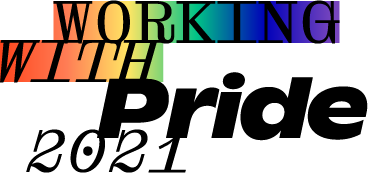
Manager, here is how you can be a good ally
An equal manager recognises their own prejudices and wants to learn new things.

Managers often have the optimistic idea that teams naturally support inclusion and function equally. However, the work community might have never had a joint discussion on what equality means in the organisation.
TEK’s thesis worker Olli Kiikkilä came to this conclusion after interviewing tech industry managers on inclusive organisational culture in the field of technology.
Kiikkilä studies industrial engineering at Aalto University, majoring in Organization Design & Leadership.
– As I was conducting the interviews, I heard that some managers have never thought about matters related to diversity and inclusion because they feel that those things are already baked into their DNA. This comment is dangerous regardless of its veracity, as it does not question the equality of the manager, team or organisation or encourage them to develop in this regard.
According to Kiikkilä, homogeneous teams should also discuss how they could create better workplaces for all instead of thinking that diversity topics are not relevant for them.
– What if a person who differs from everyone else in the work community joins the organisations? Kiikkilä asks.
Being an ally means that even though you are not part of the group being discriminated against, you can still support minorities and further their causes.
Educate yourself and find out about things
A manager who wishes to be a good ally to a minority must be self-critical and receptive to new information.
– Being an ally means that even though you are not part of the group being discriminated against, you can still support minorities and further their causes. Equality is everyone's business, says Kiikkilä.
If a manager wants an inclusive work community, the equality must be genuine. The willingness to realise equality must come from the managers themselves, and from their own understanding.
According to Kiikkilä, the manager can demonstrate that they are a good ally primarily by educating themselves and exploring the issues.
The management team can promote diversity in practice by appointing a person responsible for developing equality matters in the organisation, for example.
Kiikkilä also recommends that supervisors participate in inclusivity training where they imagine scenarios and think about how equality manifests itself in the organisation's everyday operations.
Managers must also disseminate information to their team and tell them how and why inclusivity is sought and what data and research there is on the significance of equality and diversity.
The diversity and inclusivity of an organisation can be developed like any other organisational process.
Monitor the equality situation
Specialists in the technology industry must often monitor the latest technological developments, research and products of their field.
It is difficult to identify problems or flaws in the way equality is realised if there is no way to measure equality.
However, the diversity and inclusivity of an organisation can be developed like any other organisational process.
– Measuring inequality is more difficult than measuring the fulfillment of the goal of selling 20 % more computers, say, but tools for this work exist and include anonymous weekly surveys and feedback channels, or more comprehensive in-house equality audits, for example. A reflective discussion within the team about equality is always a good move, even if there are no visible problems on the team.
Intervene when you see discrimination
A manager may promote allyship in practical terms in the organisation's everyday operations by addressing discriminatory humour and striving to get rid of heteronormativity and gender roles within the organisation.
– One of the most significant problems faced by organisations is that members of the work community do not necessarily understand what kind of different worlds and backgrounds people are coming from. When you don’t understand, you might use exclusionary humour or language by accident. As you become more aware, your desire and ability to address harmful situations and thought models also grow.
If a manager wants an inclusive work community, the equality must be genuine.
In order to increase understanding, the person intervening in another's harmful speech must explain to the other person why their humour or way of talking is harmful.
– It does no good to receive criticism for one's speech if one does not learn to understand what is problematic about the speech in the first place.
Admit your limitations
A manager must lead by example, but also admit to their ignorance.
– We all have some stereotypes about other people. Good managers identify their own presuppositions and how their assumptions affect their behaviour. While doing my thesis work I have noticed that you can never know everything there is to know about these themes, and you can always learn more. Critical evaluation of one's own actions is key in identifying one’s own thought patterns and in the development of leadership.
The themes of equality and diversity may bring up resistance from some employees, but a manager should be able to handle opposition. However, employees cannot be forced to change and develop.
But if an organisation is unwilling to change, people who are not free to be themselves will leave it.
– A good manager talks with leavers and asks them why they chose to leave and what they could learn from the work community's problems.
How a manager can be a good ally?